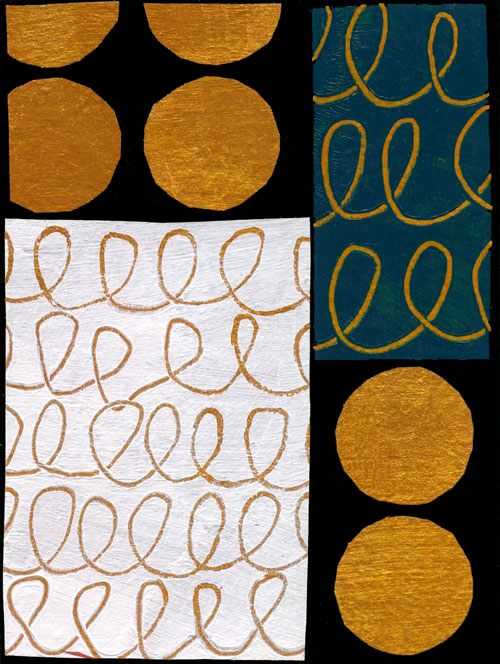
Taxing Questions © Jan L. Richardson
Reading from the Gospels, Year A, Proper 24/Ordinary 29/Pentecost +18: Matthew 22.15-22
I’ll not make too much of the fact that this week’s gospel lection, Matthew’s famous “render unto Caesar” passage, falls during a week that has also included doing the paperwork for my quarterly sales tax payment. The timing is a mild coincidence that could tempt me to rant a bit about how I’d be happier to render unto Caesar if he didn’t it make it so *!@?!# difficult, and didn’t provide so many convoluted disincentives to those who work to be conscientious about our rendering. But, like I said, I’m not gonna rant.
The point of this passage, which also appears in Mark and Luke’s gospels, isn’t really about paying taxes, anyway. Each of these three evangelists makes a point of stating that Jesus’ questioners are seeking to entrap him with their queries. Luke adds a couple of details in his version, noting that the religious leaders sought to “trap him by what he said, so as to hand him over to the jurisdiction and authority of the governor.” Luke goes on to say that Jesus “perceived their craftiness” as they asked him, “Is it lawful to pay taxes to the emperor, or not?”
I know these questioners. I’ve met them, these folks who have learned the knack of asking questions that aren’t really questions but rather are a litmus test. I think of the friend years ago who, upon learning of my call to ordained ministry, began to barrage me with a series of questions organized around other topics that I (a woman pursuing ordination) must be equally wrong about: What did I think about homosexuality? Fornication? The inerrancy of scripture? Or the member of a church I once served, who walked into my office one morning with bagels and tea; his hospitality proved short lived, as he then set upon me with what amounted to arguments with question marks tacked onto the end.
There’s a kind of violence to this form of encounter in which someone, whether through intention or through an unconscious ingrained pattern, approaches us with an inquisitiveness that harbors a weapon. In these hands, questions transmogrify into snares, cudgels, tools for distancing and defining and diminishing. Thinking they already know the answer, such questioners aren’t really interested in engagement but in finding confirmation of their assumptions and fodder for their prejudices.
With his craftiness detector on, Jesus recognizes a loaded question when he hears it. And he doesn’t exactly choose to turn the other cheek here. He, too, possesses a certain level of cunning; he responds to the question, but he cuts through their assumptions about how he will answer it. Given choices of A or B, Jesus will always come up with an inventive C.
I’m intrigued by his ability to do this—by his capacity to receive every question that every person poses to him, by his ability to recognize when he’s being baited, by his ingenuity in coming up with an unexpected response. Most of all I’m intrigued by the remarkable grounding that helps him to achieve this. This takes an intense clarity, a deep sense of who one is and what one is called to do. Faced with those who approach us with assumptions and ulterior motives, having this kind of clarity and grounding offers some hope of responding as Jesus did. It takes, too, cultivating an imagination that sees beyond limited and limiting choices and the assumptions that underlie them.
Where do we get this kind of grounding, clarity, and imagination? I found myself thinking of one example during a phone conversation last night with the St. Brigid’s community. We were reflecting on the practice of praying the Psalms, using as our starting place Kathleen Norris’s splendid essay on “The Paradox of the Psalms” in her book The Cloister Walk. As we talked about the gifts and challenges of praying the Psalms, I remembered a story that Robert Benson relates at the opening of his book Between the Dreaming and the Coming True. He tells of being in a class with “a man with his well-worn, heavily marked Bible open before him, playing a game of ‘trap the teacher.’ He should have known better,” Benson observes, “than to try to trap this particular teacher. Those who pray the Psalms by heart do not rattle very easily.” Benson continues,
The teacher was finishing up a series of talks on praying the Psalms that she had been giving to a community of about sixty of us. I do not now remember the man’s question. I remember only that it had a ‘Well, that is all very well and good, but the God of Abraham [and, therefore, of judgment and vengeance, one got the feeling] is going to make sure that the good guys get into heaven and the bad guys don’t, no matter what’ edge to it. It was asked in a spirit that was not exactly in keeping with the spirit of our prayer community, which was to be together for two years.
Hazelyn McComas looked at him for a minute and then said softly, and with fire in her eyes, ‘I cannot answer that. But I can say this: We Christians are awfully hard on each other and on ourselves, too. And we seem to be especially that way about things that may not really matter.’
In recounting the rest of McComas’s response, Benson solidifies his depiction of her as a woman who was able to respond in much the same way that Jesus did when posed with a taxing question. Recognizing its intent, she neither dismisses it nor gives in to the assumptions that framed it. She finds another way, a true response that rises from the depths of who she is.
Benson recognizes the life of prayer that provides the deep well from which McComas responds to her questioner. She has, he says, “spent a life seeking for glimpses of and listening for whispers of God within the ancient prayers of the Chosen People.” I love his observation that “Those who pray the Psalms do not rattle very easily.”
It’s one thing to know the surface of the scriptures, and another thing entirely to enter the Bible as a place where God meets God’s people—an approach that runs through Hazelyn McComas’s teaching. Entering the biblical text with the desire to meet God enables us to frame our questions, and to respond to the questions of others, in a dramatically different way. When we travel the scriptural landscape as a pilgrim open to the presence of God in every place, rather than as a tourist who thinks we know everything about a place because we’ve visited it a few times, we cultivate a humility that fosters the kind of clarity and imagination that fueled Jesus’ response to his interrogators.
Jesus, of course, prayed the psalms.
I’m not wanting to turn this into a reflection specifically about praying the psalms, but Matthew’s text got me thinking about Robert Benson’s story, and Hazelyn McComas’s, and about my own story of attraction and resistance toward the psalms, those ancient prayers that have sustained the people of God for millennia and that lie at the heart of the monastic tradition to which I feel so drawn. And all these stories are part of the larger story of my own searching and hungering to meet God in the scriptures and elsewhere, and to sink my roots deep into a landscape that helps me grow into someone who can recognize and ask the questions that matter, and resist the ones that don’t.
So what kinds of questions are you receiving these days, and how do you respond? What questions are you asking, and where are they coming from? Are there ways that you try to box Jesus in, thinking you know how he’s going to act in your life? Are there ways that you allow yourself to be boxed in by others or by your own self? What practices help you meet God, in our sacred texts and elsewhere? How do you cultivate an openness to the surprising, imaginative, unexpected ways that God might be wanting to act in your life? What’s option C?
What are you rendering to God?
In these days, may we be people of remarkable imagination. Blessings.
[To use the “Taxing Questions” image, please visit this page at janrichardsonimages.com. Your use of janrichardsonimages.com helps make the ministry of The Painted Prayerbook possible. Thank you!]



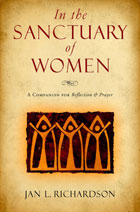


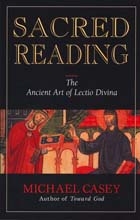
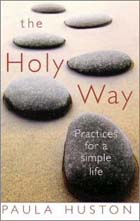
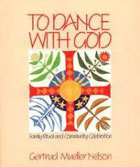
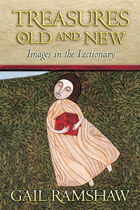
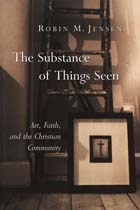
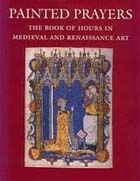
October 17, 2008 at 10:56 AM |
Jan,
Your visual works and your words are of such value to me as I mull over the scriptures each week. It was good to hear your voice the other night also. Thank you! Peace. Brett Kelly
October 19, 2008 at 7:56 AM |
Jan,
We are missionaries on an island that is virtually forgotten by the world and its own government. It is Parochial and tribal and we are frequently the focus of “town meetings”. We live in one village but are responsible for more than 16 plus projects for the entire 35 mile long island.
Recently questions of seeming inquiry have been difficult to answer as they seemed to have hidden meaning. This sermon addresses just that situation. When we are asked to explain what we are doing to help them, we have attempted to explain the whole of our mission…when “C” would be to answer with the question, “what are you doing to help yourself?
Since our Sunday sermons are generally in a language we only partially understand I often save yours until Sunday am….thank you, especially for the insight in this one. Shirley
April 4, 2010 at 3:18 PM |
Jan, Loved this piece especially about the story about Hazelyn MCcomas.
15 or 16 years ago in WV I had a missionstudy for a week from her and was it ever powerful she called some of her psalm prayers her nuggets of gold. These nuggets have susstained me through death of parents , son and grandson,a daughter with bipolar along with my husbands cancer twice . Those Nuggets of Gold have made it impossible for anything or anybody to rob me of my joy. Because of Jesus resurection I can go directly to God with my Psalm prayers. The curtain was torn away and Becaude he lives i live also.PraIse God